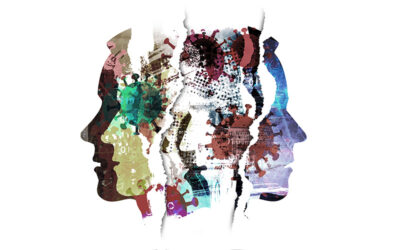Berkeley, California. The bastion of free speech, of Bay Area beauty, of progressive thinking, a socialist enclave wrapped warmly in a blanket of greenery, organic nouvelle cuisine, and a world class university. And while all of these descriptions contain some truth, Berkeley is also much more. A place of intense diversity—ethnic, socioeconomic, cultural—of mass media intoxication, hip hop and urban political consciousness, bookstores and bakeries, and a place of sudden violence.
If you want to know Berkeley, visit Berkeley High School. Commonly known as “Yale or Jail”, with graduates headed to MIT and Harvard, to Folsom and San Quentin prisons, the students come together each day, children of wealthy ex-hippie parents, and those of the working and under classes. Black, white, yellow, brown. Descendants of “free speech” movement radicals, and of domestic migrants who flocked to the Bay Area, lured by wartime job production during the 1940’s, these boys and girls mingle in the courtyards of this great and imposing institution, become friends, sit beside one another in class, have sex together, take drugs, study, and make choices, both smart and stupid.
They dance to corporate rap, to the pulsing misogynistic images of bling and sex. They consume, desire and demand immediate gratification and technological distraction. They believe the world belongs to them, a sense of entitlement fed by advertisements pounding a message of need, pushing desire to its extreme, carrying on a tradition of no limits from parents who shared a belief in endless credit, a subprime world of limitless cash. I want it. I buy it. But this new generation has taken it to another level. Raised in the cyber universe of Myspace and Facebook, the material world has been reduced to bytes, information, matter transformed into digital realities devoid of material substance and so perceived as without actual value. Not only is this generation entitled to all it desires, but it doesn’t even have to pay. Music floats through Limewire and BitTorrent only to be clicked into ownership, free of charge.
If you want to know Berkeley, spend some time at the sidewalk cafes, listening to the conversations of aging hippies explaining the implosion of modern capitalism. Go to the lectures of local Nobel Prize winning nuclear physicists, of world renowned economists and cognitive scientists. Sit beside the Lawrence Hall of Science, mesmerized by spectacular bay views, and then drive down to the west side train tracks and see the spray painted “tags” of skateboarding graffiti artists. Work your way from Solano Avenue and its high end childrens clothing boutiques to the Sacramento Street corners crowded with dealers peddling ecstasy, weed, vicodin and ritalin. If you want to know Berkeley, listen to the teenagers mingling in the hallways of Berkeley High discussing college applications, their upcoming jazz band and dance performances, while riffing on “bitches, ho’s, niggas, jews, chinamen, and a-rabs”.
Berkeley—hip, political, narcissistic, diverse in race and economy, monochromatic in its insatiable need to possess. Really like so many places in America, but with a hip sheen, a veneer reflecting mythological dreams and desires, illusions cultivated over generations. Yet perhaps modern Berkeley is much of what it promised to be. A place of progressive ideas, awareness and tolerance of the “other”. And perhaps the way this appears looks nothing like that which was expected by those who came before, by the “free speechers” and Black Panthers who fought the national guard down Telegraph Avenue to the campus in the 1960’s, who sowed the seeds of their “Great Society”. Perhaps those ideas battled for have been embodied in new ways, where put downs are hurled without regard to race, a rich new language of insult, where lack of respect translates into acceptance, a peculiar melding of “playing the dozens” and social democracy, where utopian visions are powerfully refracted through post-modern lenses, expressed in forms that could not have been predicted.
As one who came of age in those heady Vietnam years, it’s not the way I imagined Berkeley. But my son, a modern native, growing up on the not so gentle streets of this much misunderstood town, gets and is fully of the new Berkeley, a part of the post racial, pan economic melting pot, where “virtually” promoted parties rain chaos onto unsuspecting homes, an uncomfortable and sometimes explosive high energy mix of teenage everything, some kind of twisted dream of the 60’s fulfilled. We cannot know what the ideas we create will generate. And as we observe the images, the unexpected shapes of this new world, we are reminded that the parent can never fully understand the child, that the parents becomes the children, students of difficult, often painful lessons. Berkeley, a place of great intellectual foment, is a boiling cauldron of ideas, blended with forces well beyond its knowing, a cultural mash with a rich history, fed by modern capitalism, an integral part of the consumption society, a fusion of positivity and poison.
And as we move into a new era, one of economic down turn, new forms of knowing and being will emerge. The titanic clash of expectations and experience will cleave Berkeley (and the rest of our nation) wide apart, opening the world to new possibilities. Paradigms never shift easily, but their movement cannot be stopped. The myth of Berkeley is of an idyllic liberal haven, a tree lined jewel of tolerance, peace and love. The truth is that it is a complex mix, a place of social and economic inequity, of racial tolerance and resentment, of intellectual depth and mind numbing materialism. Berkeley is a modern American city, embodying uniquely American potential, challenged by a culture that threatens its ideals.
[email protected] www.rickyfishman.com












You have it right. Berkeley is a pressure cooker,
with a big bright side and a big shadow side.
Also, it seems to me that our children are living
the revolutions that we started.
Well said, thanks for posting.
Thoughtful and thought provoking. Nice piece.
Well said Ricky.
If perceived reality is viewed by each individual through the screen of previous influences, it would seem to me that a useful place to begin to tip the balance in the favor of acceptance would be to release the format of experience that must limit to control –for that platform has its basis in fear.
Through the expanded ability to perceive a situation from a more inclusive viewpoint it becomes understood in a different plane of observation. This does not indicate an ‘easier’ level of experience. Acuity of thought along with the desire to know more in order to express more precede dimensional changes. It is a skill that must be developed before it is possible to move into the higher levels of experience.
Nicely written Ricky, parenthood rendering you the student, but like you, I keep getting the class I don’t want.
I keep thinking I want to write a book called “Evidenced Based Parenting: A Guide for Parents on the Verge”
Thinking about this generation, in addition to all you have said, I am struck by the Teflon sensibility the medical marijuana card brings with it. Our children who gleefully have ‘anxiety, sleep disorders and chronic pain’– proud banners for thwarting the man. What tragedy that the only palpable social agitation that I am aware of within my son’s cohort is about twisting the medical marijuana law for personal use. ***Yawn. At the very least one might hope that their energies be put toward legalization in general and policy asks—dollars toward rehabilitation instead of incarceration, at least it would be about something larger than Berkeley, larger than themselves.
Did we so imbue our children with social movements, social awareness and fairness, that we left nothing new for them to discover except narcissism? As a kid who had a great deal to leave behind in my family of origin, Berkeley was the only place I wanted to raise my son.
Is the evidence we are left with that our children would have been better off had we never left the places we were from?
Berkeley, the perfect retirement community.
No children allowed.
Like Florida, without hurricanes.
Well-written: a rant without being a rant.
Thank you for sharing this, and encouraging me to read it.
You have first-hand knowledge of these seeming contradictions, and a bird’s eye view of the universal, yet specific situation that is Berkeley.
Have you considered trying to submit this to the local press?
I think it speaks to many.
Hi Ricky
Thanks for sharing this thought provoking and interesting piece with me. It is very well written, giving me a snapshot of Berkeley the place of myths, ideas and dreams. Hopefully I’ll be able to visit one day soon!
Unlike Americans, the evidence is that upwards of 70% of Australians never settle more than 5 miles from their place of birth. It would seem that in some respects this may shield our youth from some of the issues you have raised, if only that there is more intergenerational influence and immediate support available for a lot of our young people.
Our medical system is also so different from yours, thankfully “Managed Care” is a system in a distant Northern land that we both fear and puzzle over.
Youth is always good at teaching the teachers, my guess is that your son is teaching you exactly the lessons you need and that you will find a place with him where you can both reside in mutual jarmony and acceptance.
Cheers
Lyn B
Thanks Lyn for your comment. I do think that that unsettled nature of our youth (although this has been a very American thing probably noted by deToqueville) does move against the necessary support our youth need. But now with technology being what it is, I believe they have a hyper inflated sense of what they know and who they are that just supports extreme egoic action. And I do believe that here, as I make note in my essay, my son is my most powerful (and annoying) teacher.
well put. i wonder how much of it is unique to berkeley.